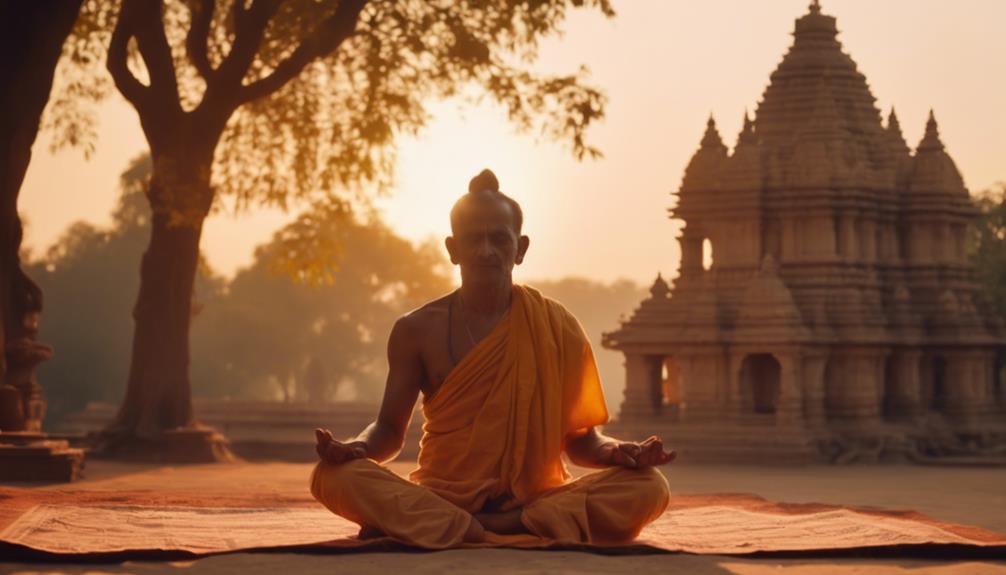
In a world where wellness trends come and go, yoga stands out as a timeless practice that captivates hearts and minds across the globe. But as you roll out your mat and settle into downward dog, have you ever pondered the question: is yoga a Buddhist practice? This inquiry invites us to embark on a journey through history, spirituality, and cultural exchange, exploring the fascinating relationship between yoga and Buddhism. Buckle up; we’re about to stretch our understanding!
Unraveling the Mysteries: Is Yoga a Buddhist Practice?
The roots of yoga are steeped in ancient Indian spirituality, intertwined with Hinduism, Jainism, and yes, Buddhism. While yoga itself is not exclusive to Buddhism, certain branches of Buddhist practice, particularly in the tradition of Tibetan and Zen Buddhism, embrace yoga as a means to attain enlightenment. Both yoga and Buddhism share the fundamental aim of alleviating suffering and achieving a deeper state of consciousness. However, they each possess unique philosophies and practices that distinguish them from one another.where yoga originated
In Buddhism, the focus is often on mindfulness and meditation, seeking to understand the nature of reality and the self. Yoga complements this journey by offering physical postures and breathing techniques designed to prepare the practitioner’s body and mind for meditation. This harmonious relationship between the two has led to the incorporation of yoga into many Buddhist teachings, thus creating a rich tapestry of spiritual practices that promote inner peace and self-awareness.
However, it’s essential to note that not all yoga practices are Buddhist; many are rooted in Hindu traditions. The popularization of yoga in the West has led to a delightful blend of various influences—some classes may incorporate Buddhist principles, while others may remain firmly in a secular or Hindu context. Therefore, while yoga can be a wonderful companion on the Buddhist path, it is not strictly a Buddhist practice, but rather a diverse and inclusive journey of self-discovery.
Stretching Beyond Borders: Yoga’s Joyful Journey to You!
From the serene landscapes of ancient India to bustling urban centers around the world, yoga has transcended geographical and cultural boundaries, evolving into countless styles and practices. Whether you’re practicing vinyasa, hatha, or restorative yoga, each style brings its own unique elements while maintaining the core principles of mindfulness, breath, and movement. The global embrace of yoga invites people from all walks of life to experience its transformative benefits, regardless of spiritual affiliation.
The spread of yoga across the globe can be attributed to various factors, including the rise of wellness culture in the West and the desire for holistic health practices. As yoga studios pop up in cities and towns, more and more individuals are discovering the joy of connecting with their bodies and minds. This joyful journey is not just about physical flexibility; it’s about cultivating a sense of community, nurturing compassion, and fostering a deeper understanding of oneself and others.
As yoga continues to evolve, it also encourages a beautiful dialogue between cultures. Practitioners may find themselves inspired by the wisdom of different spiritual traditions, including Buddhism, while celebrating the unique aspects of their own. This rich interplay reflects the essence of yoga: a practice that transcends borders and unites people in their quest for wellness, connection, and inner peace.
In conclusion, while yoga is not solely a Buddhist practice, it shares a kinship with various spiritual traditions, including Buddhism. This delightful fusion of ideas and practices reminds us that yoga is more than just a physical exercise; it is a gateway to self-exploration and community. So, whether you’re a seasoned yogi or just beginning your journey, take a moment to appreciate the rich history behind each pose and the myriad influences that have shaped your practice. Embrace the joy, flexibility, and wisdom that yoga brings to your life, and who knows—perhaps you’ll find a little bit of Buddhist philosophy nestled within your next sun salutation!





